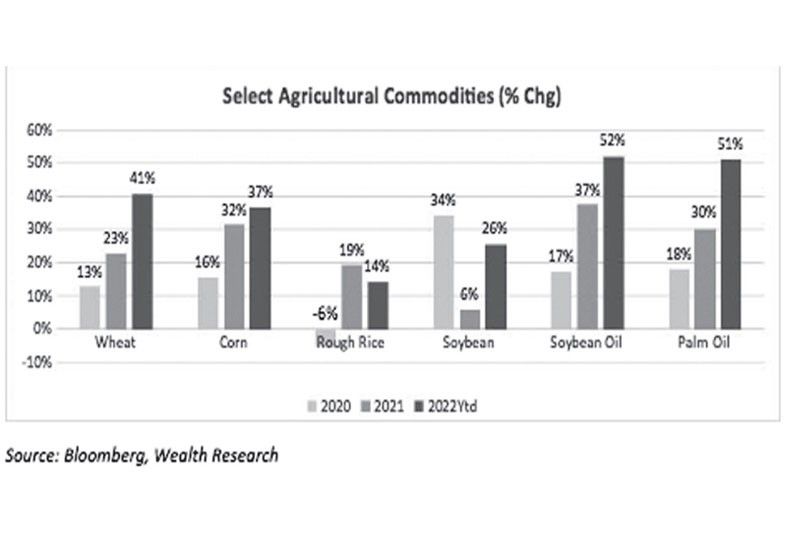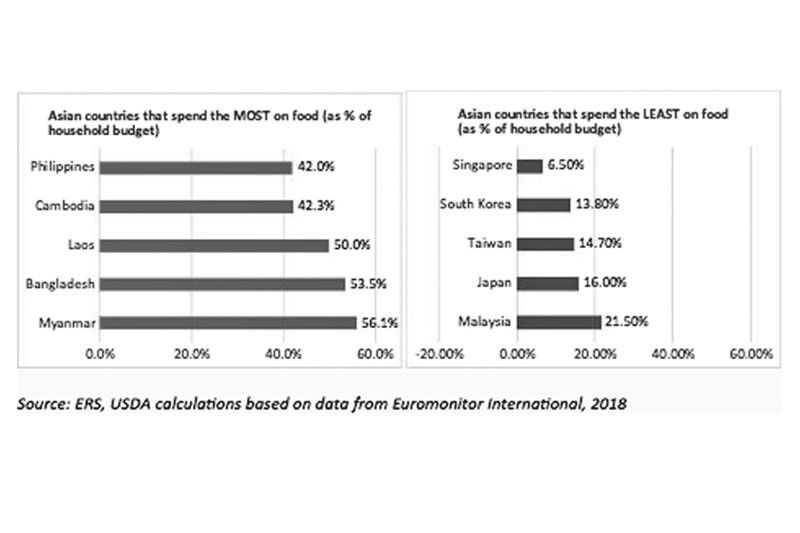Food shortage

(Part 2)
The rise of protectionist policies worldwide is yet another threat to the global food markets. In a stunning move, Indonesia moved ahead with a sweeping ban on the export of palm oil, the most widely used vegetable oil. The ban covers crude and refined palm oil.
Russia’s war in Ukraine has already choked the global vegetable oil market. Russia and Ukraine combine for 75 percent of sunflower oil exports, accounting for a 15 percent market share of all vegetable oils. Taking out Indonesia’s palm oil, which accounts for 60 percent of the global palm oil exports and a third of the world’s vegetable oils, further exacerbates the already tight market.
The perfect storm
Indonesia’s ban on palm oil exports, combined with trade disruptions from the Russia-Ukraine war, high fertilizer prices, elevated energy and transportation costs, COVID-related labor shortages, and poor harvests in South America, have created a perfect storm for agricultural commodities. This has manifested in record-high prices of agricultural commodities and agricultural food products.

Soybean and palm oil reach record highs
Soybean oil reached an all-time high of 86.69 cents per pound last Thursday and is up 52 percent year-to-date. Adding the gains in 2020 and 2021 brings the total increase to 145.5 percent since 2019. Palm oil also reached a record high of 7,104 ringgit (equivalent to $1,628.42) per metric ton last Friday, rising 51 percent year-to-date. This brings the total increase to 132.8 percent since 2019. Locally, the price of a liter of palm oil in NCR markets is now P110, up 65 percent year-on-year, according to the Bantay Presyo monitor of the Department of Agriculture.
Rising protectionism
Following Russia’s invasion of Ukraine, some governments have resorted to protectionism to mitigate rising food prices and protect their economies from a possible global food shortage. This led countries like Russia, Ukraine, Hungary, Serbia, Argentina, and Indonesia to stop or restrict exports of agricultural products, including wheat, corn, sunflower oil, fertilizer, and palm oil. Protectionism leads to higher food inflation and raises the risk of a full-blown global food crisis.
Philippines is vulnerable
While everyone is affected by rising food prices, the poor and developing countries are the hardest hit, as food costs account for a higher share of household expenses. The Philippines is vulnerable too because it is a high net importer of food. Moreover, an average Filipino family spends a big part of its household budget on food (42 percent).
Other Asian countries that spend the most on food as a percentage of household budget are Myanmar (56.1 percent), Bangladesh (53.5 percent), Laos (50 percent), and Cambodia (42.3 percent). In contrast, the top five Asian countries that spend the least percentage of the household budget on food are Singapore (6.5 percent), South Korea (13.8 percent), Taiwan (14.7 percent), Japan (16 percent), and Malaysia (21.5 percent).
Ensuring agricultural supply and food security
With record-high food prices, supply chain disruptions and looming global food shortages, the incoming government may have to spend a bigger part of the budget on agricultural supply and production. Food security must be part of an overall national socio-economic development strategy characterized by modernization of agriculture, new investments in infrastructure, mechanization of the value chain, consolidation of farming activities to improve productivity and profitability, research and development, and extension of support for farmers and traders.
Philequity Management is the fund manager of the leading mutual funds in the Philippines. Visit www.philequity.net to learn more about Philequity’s managed funds or to view previous articles. For inquiries or to send feedback, please call (02) 8250-8700 or email [email protected].
- Latest
- Trending





























